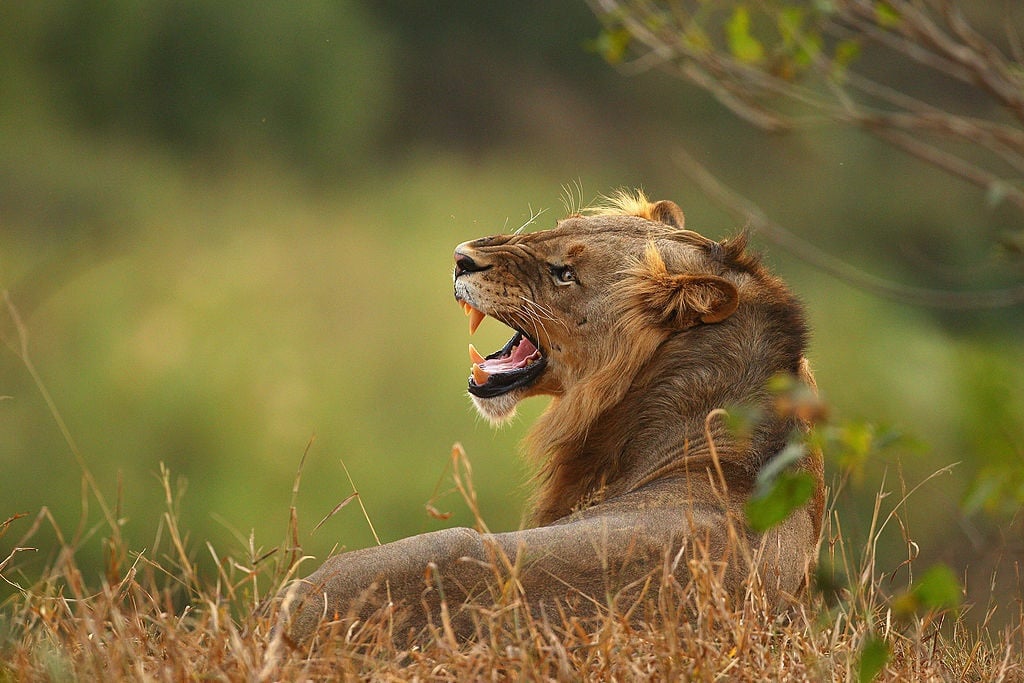
- Malawi has introduced drones as a new level of protection across six of its wildlife parks.
- Until recently, the protection of animals in the reserves relied heavily on forest guards.
- The drones provide a quick, easy and cost-effective way to monitor wildlife from a distance and can be used for research.
- For climate change news and analysis, go to News24 Climate Future.
Malawi has announced a new level of protection across its Nyika, Kasungu, Nkhotakota, Majete Vwaza, Liwonde and Elephant wildlife reserves: drones.
Until recently, the protection of animals in the reserves relied heavily on forest guards. The guards usually patrol boundary lines separating animals from their human neighbours, checking for people encroaching on the reserves.
But human resources have limits and destruction to the ecosystem, and the poaching of animals has been a growing problem.
As a result, the government, in consultation with environmentalists, has conceived of a more effective method to protect the areas. A decision was made to use unmanned aerial vehicles or drones.
READ | Rhino numbers up in Africa for the first time since 2012
Malawi's Ministry of Tourism spokesperson, Joseph Nkosi, said the use of drones would change the approach taken in Malawi's wildlife conservation.
"It is envisaged that the use of drones in wildlife conservation will bring new dimensions in both protection and research," he said.
According to Nkosi, while park rangers have worked hard to protect wildlife, they cannot be everywhere at once.
"Use of drones provides a quick, easy and cost-effective way to monitor wildlife from a distance... they can be an effective tool for wildlife research, monitoring and counting animals," Nkosi explained.
Nkhotakota Wildlife Reserve manager David Nangoma hailed the introduction of drones as a major upgrade to ranger operations. Knowing where wildlife was located at all times would better help rangers protect animals against poachers, he said.
"Illegal poachers know the movement of animals well; that is why they go straight and kill them. They cannot spend time hunting because they know that they may be caught. So we really need strategies that are able to monitor everything that is happening in these places, even treating injured animals," Nangoma said.
The use of drones and ranger activities to stamp out poaching and illegal park encroachment is supported by a growing level of goodwill from the wider population, thanks largely to the impact of extreme weather.
Malawi has recently been hit by a series of cyclones, weather events that were rare, even unknown, previously.
"Forests and vegetation within wildlife reserves act as carbon sinks as they absorb carbon dioxide from the atmosphere through photosynthesis, sequester carbon and mitigate greenhouse gas emissions," outlined chief environmental officer of the Ministry of Natural Resources and Climate Change, Boniface Chimwaza.
Apart from Malawi's parks, there are very few areas that have not been denuded of trees, making the importance of protecting the parks painfully obvious to all.
Chimwaza explained:
Weather events are increasingly attributed to global warming, including in local media. Ever since Cyclone Freddy hit Malawi in February 2022, killing hundreds of people and displacing thousands, citizens have begun making the connection between healthy forest ecosystems, carbon capture and global warming. As a result, parks and forests are increasingly recognised as a line of defence.
"Some game reserves and national parks encompass peatland ecosystems which store vast amounts of carbon. They are particularly vulnerable to degradation and release significant amounts of greenhouse gas emissions when drained or disturbed," said Chimwaza, noting that wildlife reserves remain crucial pillars for the ecosystem.
"By safeguarding these areas, we reduce carbon emissions associated with deforestation and preserve intact ecosystems that can absorb and store carbon," Chimwaza added.
READ | World first as scientists recover RNA from extinct animal - and hope to resurrect lost species
Traditional Authority Mthiramanja of the Lhomwe tribe of southern Malawi called on people to protect vulnerable ecosystems.
"We need to guard against people that are destroying our land through cutting down of trees and bushfires," he said.
For Nangoma, that means using drones to spot anyone who encroaches on his park.
bird story agency




 Publications
Publications
 Partners
Partners












